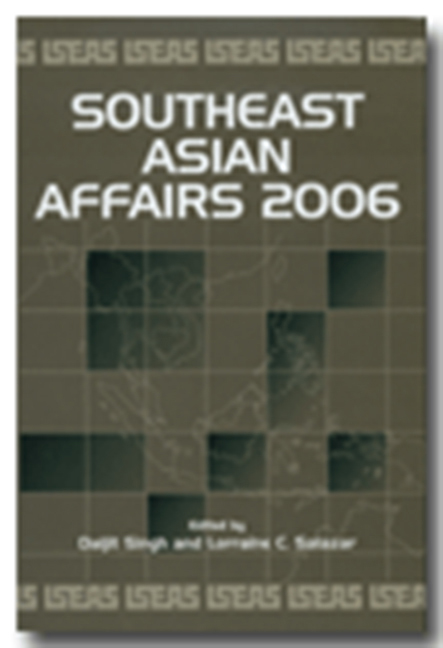Book contents
The Philippines: Crisis, Controversies, and Economic Resilience
from The Philippines
Published online by Cambridge University Press: 21 October 2015
Summary
For a country known for both its strong commitment to democracy and its weak political institutions, the year 2005 was full of intrigues and challenges for the Philippines. In July the Arroyo administration almost collapsed amidst rumours of coups, political controversies, and another People Power movement, sidelining efforts towards economic reform. Yet, despite this crisis and the ensuing policy setbacks, the economy displayed unexpected resilience.
The analysis of the events of 2005 will be divided into three sections. The first deals with the country's main political events, the second with the state of the economy. The final section concludes by reflecting on the country's economic and political prospects in the short term.
Political Developments
Crisis and controversies
The year 2005 saw the Filipino President almost toppled by street protests — yet again. Despite being impeached and facing considerable public opprobrium, the Arroyo administration narrowly survived. However, at the end of the year, the controversies surrounding the President's mandate were far from settled. These issues threaten to resurface in 2006 as her administration endeavours to push for changes in the Constitution as a way of solving the gridlock that besets the Philippine political system.
Mrs Arroyo won the 2004 elections by a margin of about 1 million votes over her closest rival, actor Fernando Poe. This entailed a six-year term for Arroyo, who rose to the presidency in January 2001. The new presidential term evoked promise, as questions of Arroyo's mandate and legitimacy seemed to be resolved by her electoral victory. Yet, the optimism was short-lived as economists from the University of the Philippines warned of an impending fiscal crisis. In her July 2004 State of the Nation Address (SONA), President Arroyo declared that the country's “most urgent problem” was solving the government's worsening fiscal and debt condition. Eight new revenue measures were announced as a legislative priority but Congress took its time legislating them. Because of this, credit rating agencies downgraded their ratings of the Philippines.
- Type
- Chapter
- Information
- Southeast Asian Affairs 2006 , pp. 227 - 246Publisher: ISEAS–Yusof Ishak InstitutePrint publication year: 2006



